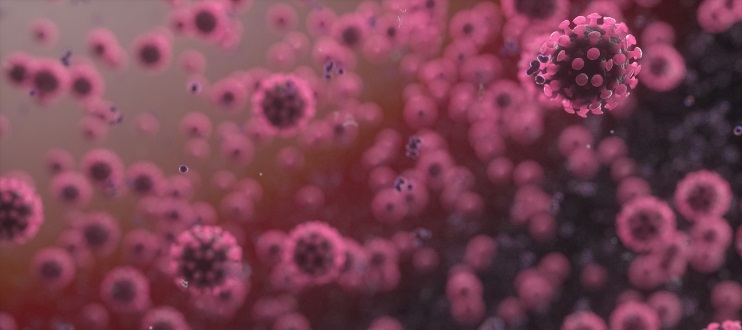

 Back to Latest News
Back to Latest News

Early treatment with triple antiviral combination of interferon beta-1b, lopinavir-ritonavir, and ribavirin was promising in the treatment of COVID-19
Professor Ivan Hung, lead author and WAidid board member, introduces the article recently published on The Lancet
A study led by the University of Hong Kong and collaborated with 6 other public hospitals in Hong Kong demonstrated that a two-week course of antiviral therapy with interferon beta-1b, lopinavir-ritonavir and ribavirin, commenced within 7 days from symptoms onset in Covid-19 patients, was safe and significantly better than lopinavir-ritonavir alone in clinical improvement and reducing the duration of viral shedding. This randomized trial included patients with mild and moderate illness and was published in the Lancet.1
The open label study recruited 127 adults with laboratory-confirmed SARS-CoV-2 infection. Participants were randomly assigned to 14 days of either the triple combination group of oral lopinavir-ritonavir (400mg/100mg) and ribavirin (400mg) every 12 hours, plus up to three doses of subcutaneous injectable interferon beta-1b (8 million international units) on alternate days for patients admitted to hospital less than 7 days from symptom onset (86 patients); or the control group of lopinavir-ritonavir alone every 12 hours (41 patients). All patients received standard care including ventilation, ECMO or dialysis support, antibiotics, and stress-dose corticosteroids. The average number of days from symptom onset to start of study treatment was 5 days.
The primary endpoint was the time to negative nasopharyngeal swab for SARS-CoV-2. Secondary outcomes included time for symptoms of COVID-19 to completely subsided as defined by achieving a NEWS2 of 0; 30-day mortality; and length of hospital stay. Treatment with the triple drug combination effectively suppressed viral load (undetectable virus) in the nasopharyngeal swab within an average 7 days of starting treatment, which was significantly shorter than the average 12 days in the control group, treated with lopinavir–ritonavir alone. Secondary outcomes also indicated that clinical improvement was significantly better in the triple combination group—with complete alleviation of symptoms as defined by the NEWS = 0 of an average of 4 days versus 8 days in the control group, and resulting in significantly shorter average hospital stay (9 days vs 14.5 days).
Subgroup analysis found that patients who started the combination treatment (with interferon beta-1b) less than 7 days after the onset of symptoms had better clinical and virological outcomes than the control group who received their treatment at the same time, but in patients who were treated 7 days or more after symptoms onset, and did not receive the interferon beta-1b as a result, there was no difference in outcomes between the combination treatment and control.
These findings suggest that interferon beta-1b might be the backbone of the triple combination therapy. Up till 25 May 2020, Hong Kong has 1066 confirmed COVID-19 cases with <3% patients required intensive care and 4 deaths.2 Apart from universal masking and contact tracing, early diagnosis, isolation and treatment might be the keys to the containment of COVID-19 before an effective vaccine available.
Recent studies have also suggested that the SARS-CoV-2 virus induces low interferon-1 and III levels, leading to low innate antiviral defences and high pro-inflammatory responses contribute to COVID-19. Investigation in using interferon beta-1b with other antiviral as combination should be further tested in moderate to severe cases.3,4
References